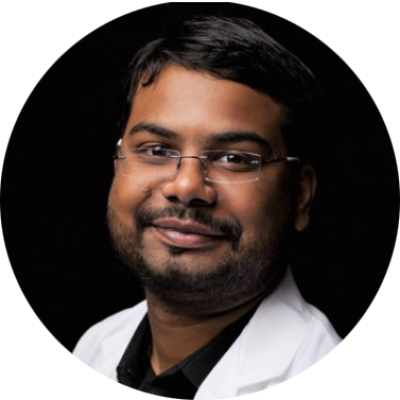
Monish Ram Makena
Breast microcalcifications, indicative of Ca2+ dysregulation, are early signs of breast cancer. My work highlights that the therapeutic targeting of calcium signaling is not straightforward. Since both elevation and depletion of Ca2+ levels can drive malignant phenotypes, the specific molecular mechanisms driving these changes need to be clearly understood. This is exemplified by my work on the opposite roles of Golgi/secretory pathway Ca2+-ATPase isoform SPCA2 in breast cancer subtypes. I showed that high expression of SPCA2 in receptor positive breast cancer confers poor survival prognosis and drives pro survival and chemoresistance. In triple negative breast cancer, I showed that low expression of SPCA2 confers poor survival prognosis, drives metastasis and drug resistance. Thus, the targeting of Ca2+ signaling in breast cancer needs to be subtype and isoform specific. Inhibitors that decrease SPCA2-driven Ca2+ signaling in luminal and HER2+ breast cancers and enhancers that reactivate deficient SPCA2-mediated calcium signaling in basal/TNBC could be effective therapeutic tools.
Questions & Answers
Why did you choose Johns Hopkins for your work? First, Dr. Rajini Rao is a world-renowned expert in the intracellular ion transport field. Second, Johns Hopkins is one of the best places in the world for scientific research. What does receiving this award mean to you personally and professionally? Do you have any connection with the particular award you received? I received the Paul Ehrlich Award. Dr. Ehrlich is a noble laureate and is regarded as the father of modern chemotherapy. It is an honor to receive recognition in his name. Professionally, it drives me to strive for excellence and personally, it is rewarding when accomplished scientists recognize the importance of my work. What contributed to your project’s success? (Special skills, interests, opportunities, guidance, etc.) I believe success is an integration of opportunity, skill and hard work. I believe calcium is a soil in which breast cancer grows, and yet surprisingly very little has been explored in this field. Dr. Rao had been a great mentor in terms of helping me to enhance my research capabilities and being gracious about my schedule during pandemic and medical emergencies. What thoughts do you have about Young Investigators’ Day itself, as a celebration of the roles students and fellows play in research at Hopkins? I hope this day will bring back the glory and happiness of collectively celebrating science events in person. What has been your best/most memorable experience while at Hopkins? When I received the 2020 AACR [American Association for Cancer Research]-AstraZeneca Breast Cancer Research Fellowship — there were about 300 grant applications submitted from all over the U.S.A., my application was in the top 1% and it got funded. This boosted my confidence, and reassured the importance of my work. What are your plans over the next year or so? Graduating, looking for faculty positions, etc.? I started as a medical writer at the National Institutes of Health (NIH). In the future, I want to do clinical research, which will benefit people. Tell me something interesting about yourself that makes you unique. Do you have any special hobbies, interests or life experiences? During graduate school at the Texas Tech University Health Sciences Center, I was one of the founding members of the Our Legacy Now Student Foundation to support students in need. I helped in fundraising about $20,000. So far, more than 25 students received financial support for special needs. I feel gratified every time I think of it.